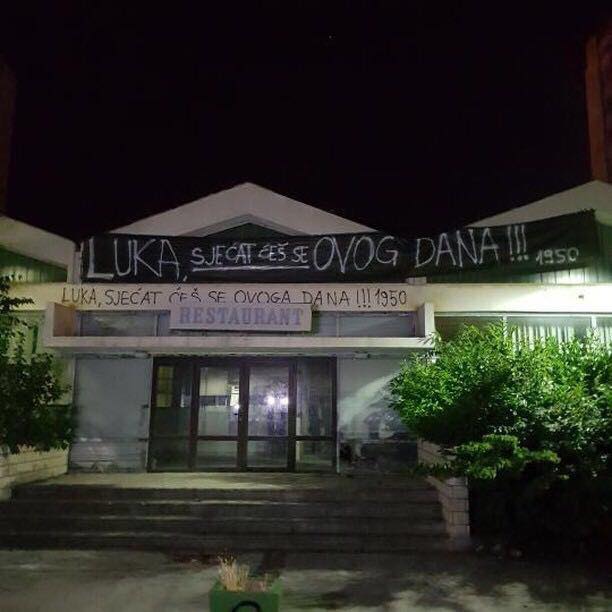August 8, 2018 — For Sale: Yugoslavia-era fixer upper with allegedly problematic tenants.
Past occupants’ lives irrevocably shaken during Yugoslavia’s bloody dissolution.
Long-time canvas for graffiti artists.
Luka Modrić once called it home.
Price: 6,6 million kuna
Croatia’s government put 10 state-owned properties up for sale, including a ramshackle building which once sheltered the nation’s greatest football player during the 1990s war.
On a list that includes a former presidential villa and unused construction land is Hotel Iž, Luka Modrić's home after he escaped his eponymous town (Modrići) at the start of the war in 1991.
The banal cube with hardly any windows wedged into a corner of Zadar not shown in postcards has become a touchstone in the ever-growing book of Luka Modrić Mythology. It runs the gamut from the brutal murder of his grandfather (true) to wooden shinguards (even Modrić was reportedly baffled by that one).
And in this world, Hotel Iž plays a hard-scrabble football haven which thickened the midfielder’s skin and quickened his tempo, as children cut matches short to scuttle indoors at the first sound of a siren or whoosh of a jet. (Though Hotel Iž housed refugees, it was definitely within firing range during the war).
The hotel continued to house refugee families and displaced persons well after mortars and bullets stopped flying. Modric’s family stayed in the hotel for nearly three years after. Other displaced persons still lived in Hotel Iž two decades after the war ended.
Local lore unfortunately includes tales of lives taken or lost within Hotel Iž’s halls. Depression became the buildings’ chief characteristic, arguably making it Zadar’s saddest structure.
The hotel’s exterior was also famously home to anti-Modrić graffiti. The midfielder endured a public backlash after his testimony at the trial of Zdravko Mamić included a bout of amnesia. “I can’t remember” became a winking national reference to Modrić. Hotel Iž was soon covered in promises Modrić would “remember this day,” with a “Luka Mamić” tag sprayed on one of the many blank walls.

The hotel’s nondescript design was common for buildings built by the Yugoslavian armed services in the 1970s. The site was originally chosen for its proximity to three Yugoslav military barracks. It served military personnel, with a bowling alley, restaurant and buffet.
The hotel’s initial asking price is 6.6 million kuna, or about $1 million. The building is being sold “as is.” The listing specifically shields the state from any legal or financial headaches potential buyers my face, including an alleged “unlawful user” (translation: squatter) undergoing eviction proceedings in court.
There will be an open house on August 28 at noon.
The deadline for offers is Sept. 11, 2018 at 10 a.m.


